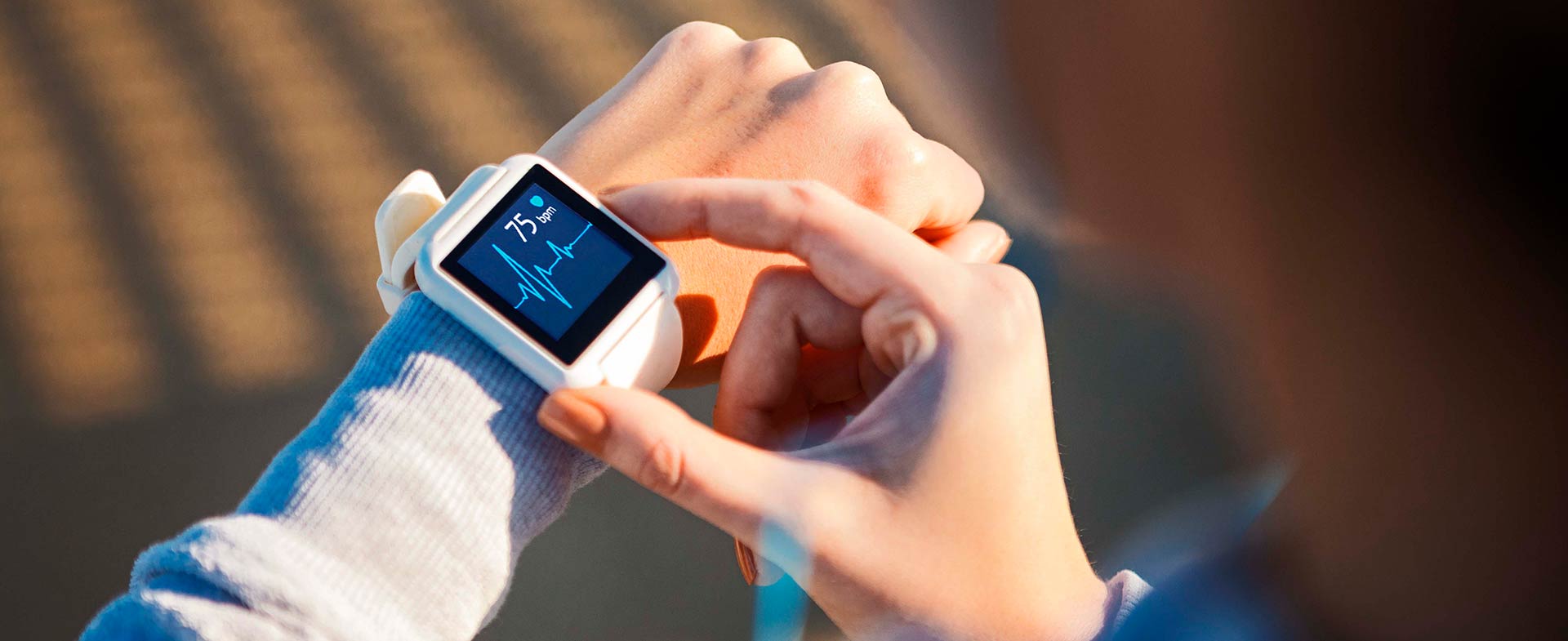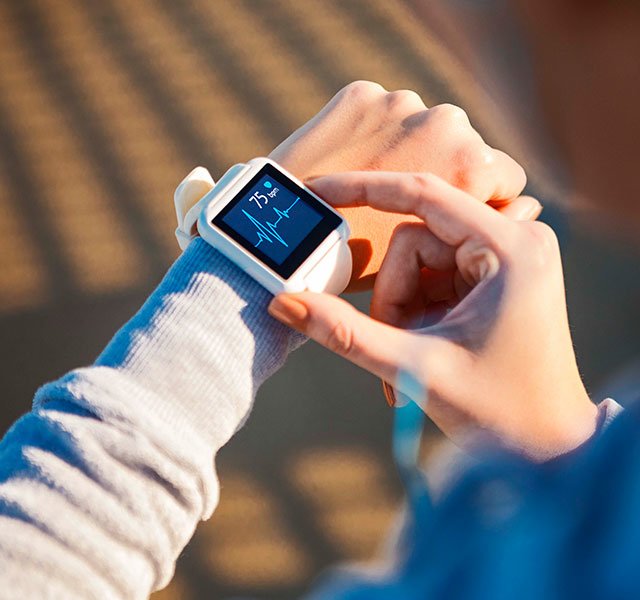We all know how important it is to maintain a healthy heart. But you may not realize that you can get a sense of how healthy your heart is with just two fingers and 30 seconds. How? By measuring your resting heart rate (RHR).
Your RHR is the number of times your heart beats per minute while you’re at rest. If you have a diagnosed heart condition, factors such as your medications and the nature of your heart problem may influence your RHR. For the rest of us, RHR can provide a rough snapshot of how well heart muscle is functioning.
“It’s a vital sign that can reflect improving heart health or a potential health problem,” says Steven Keteyian, Ph.D., who is director of preventive cardiology at Henry Ford Health.
What Your RHR Means
A “normal” RHR falls between 60 and 100 beats per minute. An RHR under 60 can indicate that you’re more physically fit and may be associated with better heart function. An RHR that is above 100 beats per minute can reflect exposure to stress, excessive caffeine consumption or an illness.
“If you have an RHR above 100 or below 50 that can’t be explained by obvious factors, such as participation in a regular exercise program, you should see a doctor,” Dr. Keteyian says.
An RHR over 100 could be a sign of an infection, heart arrhythmia or a worsening heart problem. Studies link an elevated RHR, especially in men, with a greater risk of premature death.
A low RHR, around 50 beats per minute or less, can also be a red flag. This is especially true if you are experiencing symptoms such as lightheadedness. “It could be a sign of problems with the electrical pathways in the heart,” Dr. Keteyian says.
How to Measure Your RHR
It’s important to take your heart rate while you are at rest. Don’t measure it within one hour of exercise or a stressful event. In fact, according to the American Heart Association, it’s best to measure your RHR first thing in the morning, even before you get out of bed.
While there are a variety of tools and apps to measure your RHR, all you really need is a timer. Here’s how:
- With your palm facing up, place your index and middle finger on the thumb side of your wrist, along the line where a watch band would be worn. You should feel a pulse. You can also find a pulse along the side of your neck about 1-2 inches below your ear.
- Set your timer for 30 seconds, then count the number of beats you feel during that window.
- Double the number of beats to get the number of beats per minute, which is your RHR.
For best results make sure you really are at rest before you begin. Then, it's a good idea to repeat the process once or twice to make sure it’s consistent.
How to Modify Your RHR
In addition to gender and genetics, a variety of controllable factors can impact RHR, including stress, anxiety, some types of medications, your morning cup of coffee or a caffeine-packed “energy” drink, and more. Regular exercise is a reliable way to bring down your RHR.
“If you start an exercise program, you can expect to decrease your RHR up to one beat per minute for every week or so that you train, up to 10 or 12 beats,” Dr. Keteyian explains. In elite endurance athletes, it’s not uncommon to see an RHR in the high 30s or low 40s.
Other ways to reduce your RHR:
- Quit smoking: Nicotine is a stimulant. Smoking not only increases your heartbeat, it also increases your risk of developing heart disease.
- Don’t binge drink: Even though alcohol is a depressant, sipping more than four drinks a day for women and five for men can overtax your heart and cause it to beat more quickly.
- Change your meds: Certain over-the-counter medications (e.g., weight loss drugs, certain cold medications) and prescription medications can boost your RHR. If you notice your heart rate increasing after starting a new medication, talk to your doctor about alternatives.
To find a doctor at Henry Ford, visit henryford.com or call 1-800-HENRYFORD (436-7936).
Dr. Steven Keteyian is the director of preventative cardiology who sees patients at Henry Ford West Bloomfield Hospital, Henry Ford Medical Center - Livonia and Henry Ford Medical Center - Second Avenue in Detroit.



